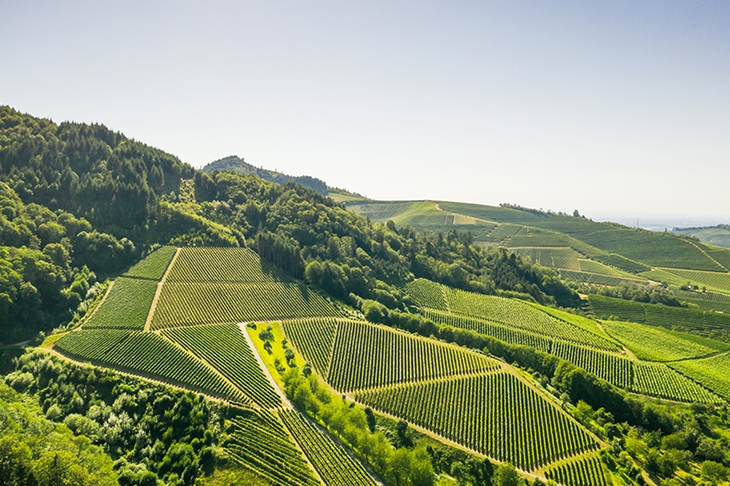In an apparently benign — almost prelapsarian — setting, the Rhine is an epitome of the human condition. Scenery is rarely more beautiful or more glorious. Yet it can be equally hazardous. This is a river that arouses mysticism, and its temptations. By swimming in those waters, men seek to affirm their unity with the cosmos and their triumph over the natural world. But every year, a fair few swimmers end up in the mortuary. Their quest for mastery over nature ends with ashes to ashes, dust to dust.

Almost as soon as men first emerged from caves, they began to beautify their dwellings near the Rhine, as well as exploiting its fertility. Around the time that the Babylon-ians identified the constellation of Aquarius, the Nile, the Tigris and the Euphrates were the first water–carriers of civilisation. In Europe, much later, that role passed to the Rhine. It was the great conduit, between the Mediterranean and the North Sea, Italy and Flanders: a thoroughfare of the arts, ideas and trade. And conflict. Bound to the wheel of the human condition, men yield to its brutalities as well as its grandeur. Riches breed rivalry, as the deadly sins run amok. Those fortunate to dwell near the Rhine and its affluence hoped for a peaceful indulgence in lust, gluttony and indolence. Rougher beings from less favoured regions would respond with pride, wrath and envy. There was an obvious synthesis: despair.
Civilisation means wine. Along the Rhine, the grape has been cultivated for millennia. After the war, when Konrad Adenauer was working to restore Germany to self-government, he took pride in his Rhineland origins. Almost using Rhenish as a libation to water the fragile roots of German democracy, he said that it was time for Germany to be governed by wine drinkers, not Schnapps drinkers. As the evening progresses, luckier nationalities might expect to indulge in both. The Germans may feel the need to be warier, lest something in a brown or black shirt emerges from the woodpile. As for luck, from the Thirty Years War onwards, Germany rarely enjoyed it. The triumph of Prussia over the Rhineland was one of original sin’s greater victories.
This serious German wine made a shy debut in the glass but then came to life
Apropos original sin, Rhenish brings to mind one of its greatest exponents — a man who never felt the need to be warier — writing about another exemplar of sinful pleasures. In his ‘Headpiece to Don Juan’, Byron declares: ‘I write this reeling / having got drunk exceedingly today / So that I seem to stand upon the ceiling.’ He summons his hangover cure: ‘For God’s sake — hock and soda water.’ John Mortimer wrote a play with that title. An excursion into gentle pessimism, it is neither Byronic nor even Rumpolian. Rumpole himself was another exemplar, of evolving British wine-drinking habits. The Scots had always been serious claret drinkers. As the 20th century went on, perhaps because of wars, the English too drank more from the banks of the Gironde, less from those of the Rhine.
The other evening, I tasted some serious German wine for the first time in months. A friend of mine, Matthew Scott, is an academic who specialises in Romantic poetry: Schiller is an especial enthusiasm. Matthew is a connoisseur of Germany and its wines. He recently came across a case of Erdener Treppchen Spätlese 1981, when Bernhard Jakoby was still running that splendid vineyard. It is now in the hands of Ernst Loosen, and equally good. 1981 was not a great year. The wine should have been well past its best. Not so. It made a shy debut in the glass but then came to life. There was less fruit than there would have been in its prime, but still structure, sweetness and subtlety. I suspect that after an hour or so, it would have begun to fade, but we rescued it from that fate. It was a wine that Rhine-maidens would enjoy.






Comments